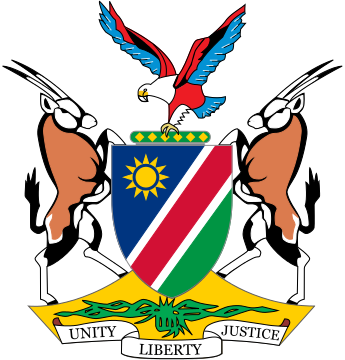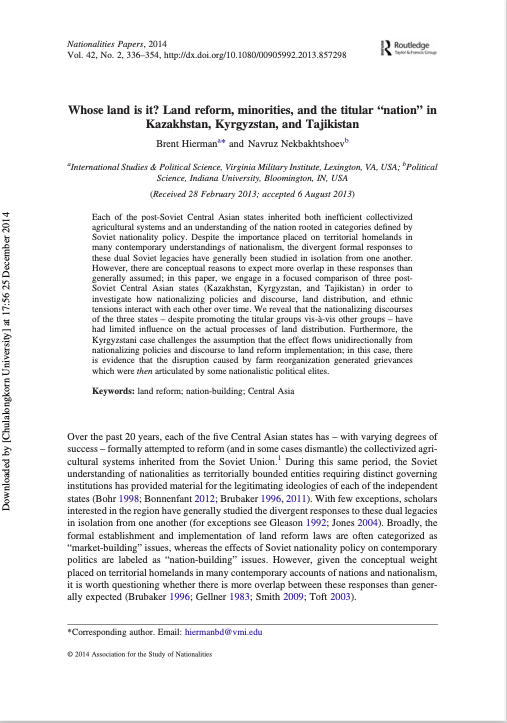Is There a Farm-Size Productivity Relationship in African Agriculture? Evidence from Rwanda
Whether the negative relationship
between farm size and productivity that is confirmed in a
large global literature holds in Africa is of considerable
policy relevance. This paper revisits this issue and
examines potential causes of the inverse productivity
relationship in Rwanda, where policy makers consider land
fragmentation and small farm sizes to be key bottlenecks for
the growth of the agricultural sector. Nationwide plot-level
Does Ignoring Heterogeneity in Impacts Distort Project Appraisals? An Experiment for Irrigation in Vietnam
Could the simplifying assumptions made
in project appraisal be so far from the truth that the
expected benefits of public investments are not realized?
Using data for Vietnam, commonly used estimates of the
benefits from irrigation investments based on means are
compared with impacts assessed through an econometric
modeling of marginal returns that allows for household and
area heterogeneity using integrated household-level survey
Topic Guide: Land. Evidence on Demand
This Topic Guide is written for DFID staff, but is relevant to all development professionals. It comprises the following sections:
Agricultural (Commercial) Land Reform Amendment Act, 2014
An Act to amend the Agricultural (Commercial) Land Reform Act, 1995, so as to insert a certain definition; to provide for further situations where the State has the right of preference to purchase land; to provide for a negotiating committee on purchase prices; and to provide for incidental matters.
The Roles of Land Tenure Reforms and Land Markets in the Context of Population Growth and Land Use Intensification in Africa
This article reviews the past and potential future roles of land tenure reforms and land markets in Sub-Saharan Africa (SSA) as responses to population growth in the process of land use intensification and livelihood transformation. The farm size distribution and the existence of an inverse relationship (IR) between farm size and land productivity in SSA and the implications of this relationship for efficiency and equity are investigated.
Whose land is it? Land reform, minorities, and the titular “nation” in Kazakhstan, Kyrgyzstan, and Tajikistan
Each of the post-Soviet Central Asian states inherited both inefficient collectivized agricultural systems and an understanding of the nation rooted in categories defined by Soviet nationality policy. Despite the importance placed on territorial homelands in many contemporary understandings of nationalism, the divergent formal responses to these dual Soviet legacies have generally been studied in isolation from one another.
Topic Guide: Land
Divided into 4 Sections: growing interest in land: large-scale land acquisition; reactions to rising interest in land at the national and international level; land reform and policy: types, impacts (including gender) and risks; land in fragile and conflict-affected states. A number of Topic Guides are being produced for DFID’s Climate, Environment, Infrastructure and Livelihoods Advisers. They are designed to be useful to development professionals.
Pursuing Gender Equality in Land Administration
Ensuring gender equality with respect to land rights is hailed as a key element of the recent land reforms, but actual results are limited. Achieving gender equality requires a comprehensive focus on land, family and other laws, including customary, and on their implementation on the ground. Summarises the findings from a series of reports reviewing progress made and challenges remaining to achieve gender equality with respect to land rights.
Ghana’s Land Reform and Gender Equality
In 1999 Ghana engaged in an ambitious land reform process with the adoption of a National Land Policy implemented through a Land Administration Project. The reform aims at strengthening land administration institutions and increasing the security of land tenure for landholders on both customary and state land, but the process is facing multiple challenges, e.g.
Institutionalisation of Sub-Saharan Africa’s Land Reforms: The Way Forward
Argues the need for long term perspectives on implementing land reforms, to address people’s perceptions and practices, to decentralise authority to the local level, and to mainstream women’s rights into every activity relating to land, land administration and land dispute settlement.
Land Reform in Mozambique
This brief includes the following
headings: rationale, objectives, and basic features of the
1997 land law; acquiring land-use rights; obstacles to
transferring urban land-use rights; promote the productive
use of Direito de Uso e Aproveitamento dos Terras, or
DUATs; and enforce the land tax.






